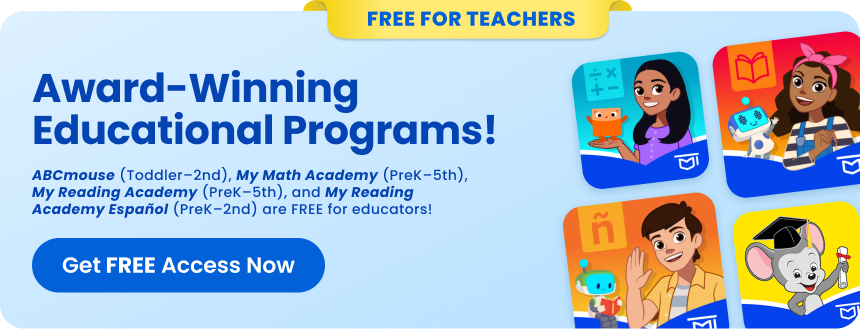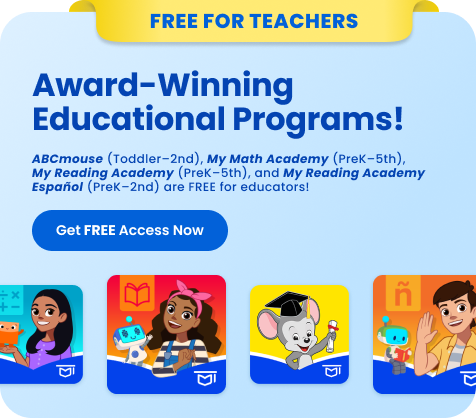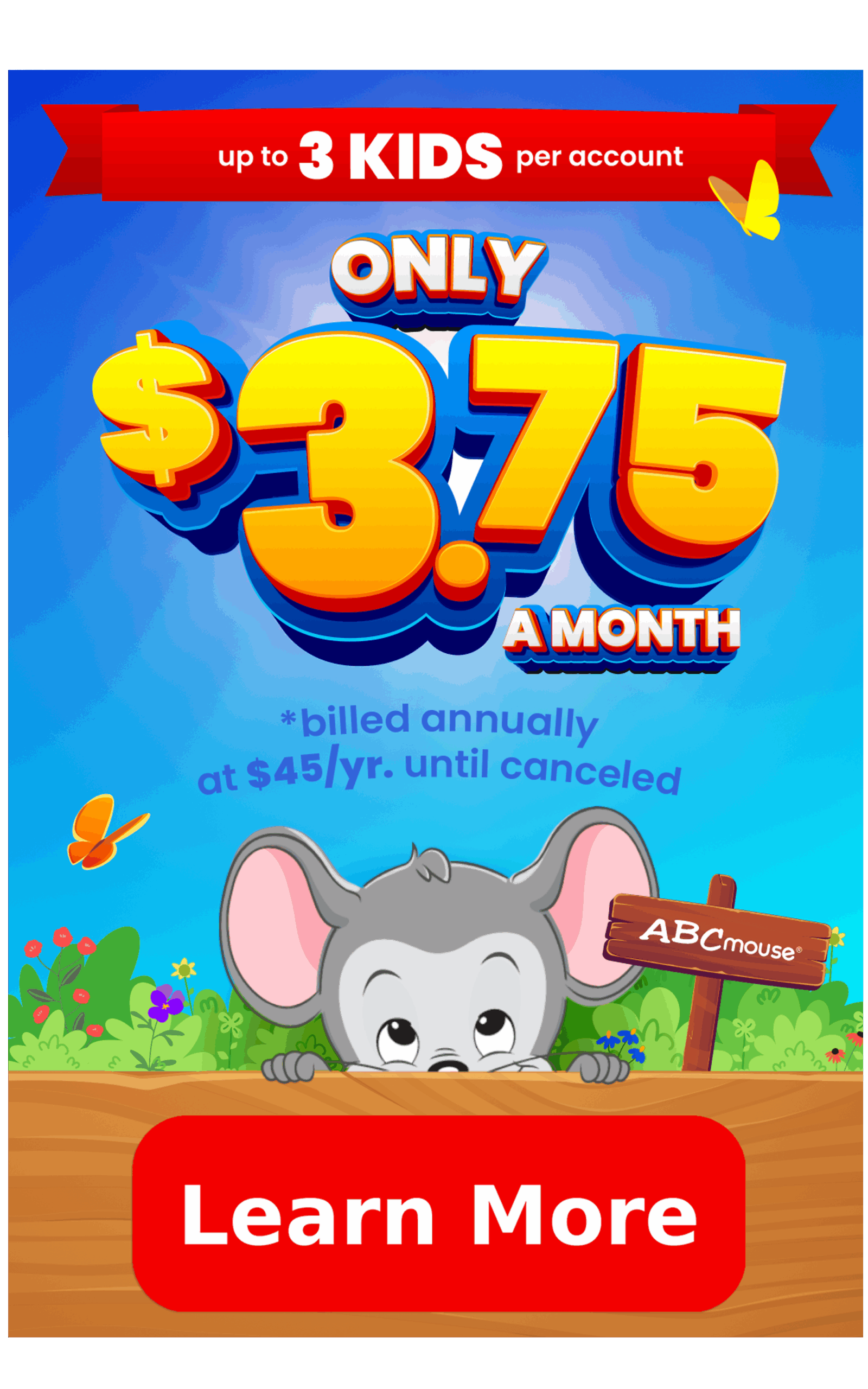
What is the Science of Reading?
Learn about the Science of Reading (SoR) and its impact on your child’s literacy skills.
What is the Science of Reading?
The Science of Reading is an approach to reading instruction that’s being adopted in more than 32 states and the District of Columbia. Its guiding principles for reading instruction have been validated by more than 50 years of extensive research from around the world in the fields of education, neuroscience, linguistics, and more.
The research behind the Science of Reading also explores how people learn to read, the best practices for teaching reading, and the underlying processes involved in reading and reading difficulties.
This extensive research base aims to understand the most effective ways to teach reading skills from foundational skills, such as phonemic awareness (the ability to hear and manipulate sounds in words) and phonics (the relationship between letters and sounds), to more advanced skills like vocabulary, fluency, and comprehension.
While the Science of Reading is not a designated reading curriculum, it’s being used to inform literacy instruction and curriculum materials.
Key Aspects of the Science of Reading
- Phonemic Awareness: Teaching students about the individual sounds of a language and how to use them.
- Phonics: Understanding the relationship between letters and sounds and how to use that knowledge to decode unfamiliar words.
- Fluency: Developing the ability to read with speed, accuracy, and proper expression, which is crucial for comprehension.
- Vocabulary: Teaching and expanding a student’s knowledge of words to improve understanding and communication.
- Comprehension: Strategies to understand, remember, and apply what has been read, which is the ultimate goal of reading.
How the Science of Reading Approach Can Improve Literacy Learning

The Science of Reading emphasizes evidence-based best practices for teaching reading. It advocates for explicit, systematic, and sequential instruction, meaning reading instruction is done in a specific order that research has proven effective.
In school districts using the Science of Reading, teachers are trained in the Science of Reading instructional methods and often use new learning materials that support the Science of Reading approach. This results in all students within the district having access to highly-trained reading teachers who are using the same research-based approach and materials. The goal is to ensure that all students have equal access to the most effective reading instruction, resulting in a high population of fluent readers.
The Science of Reading also highlights the importance of early intervention and support for struggling readers, as addressing literacy issues early on can dramatically improve a child’s success with reading. The Science of Reading uses evidence-based interventions and assessments to determine what specific support a child may need to improve their reading abilities.
The Science of Reading in the Classroom
The Science of Reading follows a specific plan, where concepts are taught in an order that’s been shown to be the most effective when teaching literacy skills. In other words, it’s very structured instruction.
Children will typically focus on concepts used to decode words, such as learning letter sounds, blends, and phonemes (the distinct units of sound in words). Teachers will use a systematic approach to teaching phonics, presenting sounds in an order that’s been proven to be effective in learning.

Children will also work on growing their oral and print vocabulary and general background knowledge through reading, conversation, and more. They will also interact with a wide range of texts, experiencing different text formats and reading tasks.
Tips to Bring the Science of Reading into Your Home
Learning about the Science of Reading is the first step in bringing this instructional method into the home or creating a home learning environment that supports the Science of Reading approach. As you work on literacy skills with your child, remember to support both sides of reading, working on decoding skills and reading comprehension.
Word decoding can often involve repetitious, fast-paced games while comprehension becomes more strategic, using thoughtful, exploratory experiences to build background knowledge and practice understanding.
Here are a few areas to focus on and simple ways you can practice general concepts from the Science of Reading at home with your child.
Shared Reading
Shared reading is an interactive experience where you read aloud to your child while encouraging their participation. It supports early literacy by helping children develop vocabulary, comprehension, and phonemic awareness. Learn more about shared reading here.
How to Do Shared Reading
As you read, point to the words on the page and ask your child questions about the story. You can also pause to explain unfamiliar words or ask them to predict what will happen next. This helps engage your child in the reading process and promotes a deeper understanding of the text.
Work on Phonological Awareness
Phonological awareness is a child’s ability to recognize and use the various sounds in a spoken language.
Play Rhyme Toss
Begin the game by holding a ball in your hands and saying, “I went for a walk and saw a cat.” Then toss the ball to your child. They have to say what they saw when they went for a walk, and it needs to rhyme with the word you just said. For example, when they catch the ball, they would say “I went for a walk and saw a hat.”
Practice Phonemic Awareness
Phonemic awareness is the ability to identify and manipulate the individual sounds a child hears in a word.
Go on a Sound Hunt
Pick a letter or letter pair sound, such as sh-. As you and your child go about your day, your challenge is to notice as many things as possible with the sh sound, like shoes, shirt, shorts, etc…
Build Phonics Skills
Phonics is a child’s ability to associate certain letter sounds with individual and groups of letters. Phonics is built around phonological and phonemic awareness.
Fill in the Blank
Create a list of CVC words (consonant-vowel-consonant), such as cat, map, and hop, but leave the vowels out. Make a separate list of vowels for your child to choose from to fill in the blanks of the CVC words.
Expand Vocabulary and Language
Reading proficiency also encompasses a child’s capacity to link words and language styles to concepts and experiences they have encountered in their lives. Building a language-rich environment for your child can help.
Look for Language
Create a challenge to explore as many different types of language resources as possible, including listening to audiobooks, podcasts, the radio, and more. Head to the local library to seek out as many different genres and styles of books as you can to further explore language in print.
Grow Background Knowledge and Comprehension
A solid foundation of knowledge allows readers to draw inferences and understand words with various meanings. When possible, expose your child to new experiences, places, and people, growing their base of knowledge. Then help them connect the new information they’re learning to things they may already know about.
Read and Do
Pair books your child is reading with similar real-world experiences. For example, if there’s a fire station in your child’s book, take a walk past a fire station in your neighborhood and label the different things you see. If a book mentions a picnic in a park, head to your local park with a bag lunch and compare your picnic to the one in the book.
More Activities to Try at Home
- Play Phonics Games: ABCmouse offers dozens of free online games your child can play to boost their phonics skills.
- Sing Letter Sound Songs: Singing is a fun way for children to grow their familiarity with the sounds of each letter in the alphabet.
- Letter Sounds Worksheets: These free, printable worksheets help children practice learning the alphabet, as well as the sound each letter makes.
Tip: Check out our extensive list of engaging hands-on letter sound activities to try at home with your child.
An ABCmouse Curriculum Expert Explains the Science of Reading
ABCmouse and the Science of Reading
ABCmouse aims to support the Science of Reading approach through its focus on interactive phonics instruction. Our program includes exciting activities and educational games to help your child understand and properly use letter sounds, rhyming, syllables, and other building blocks of reading. You’ll also find a variety of texts with different decoding challenges, fiction, and nonfiction topics, and reading supports.
#1 Downloaded Kids’ Education App in the U.S.
The ABCmouse app has so much to offer! You and your child will find 10,000+ games and activities designed by curriculum experts to nurture math and reading skills, along with an extensive digital library and so much more. Our research-back curriculum focuses on preschoolers through second graders.
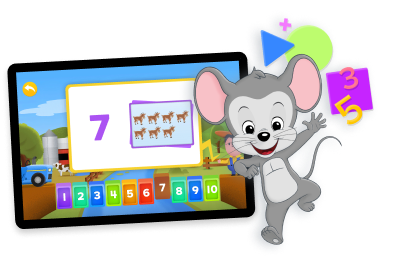
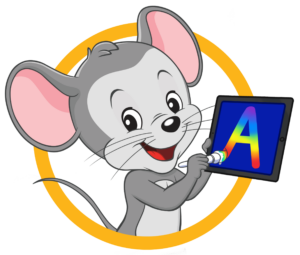
Then just $14.99 a month until canceled
Additional Resources
ABCmouse offers resources for parents and activities to help children keep learning. Here are a few examples.
Preparing Your Preschooler for Reading
Tips and strategies to help get your preschooler ready to start reading.
Browse ➜
How to Teach Phonics to Kindergartners
Tips and activities to help make learning phonics fun for your kindergartener.
Browse ➜
Free Printable Vowel Worksheets
Check out our collection of vowel worksheets for preschoolers and up.
Browse ➜
ABCmouse’s expert advice review process:
Our team of ABCmouse Curriculum Experts, made up of talented professionals in early childhood education and development, take a close look at educational content and learning claims. They put in the effort to make sure our information is accurate and current. We have a certified educator or another respected authority review the content, matching their expertise with the topic at hand. They’ll make sure the content is thorough and follows the latest research and educational guidelines. If they think we can make things even better, they’ll chat with our editorial team, and we’ll make those improvements right away. Only after a reviewer gives their thumbs-up does a piece of content get the official stamp of approval in the byline.
Legal Disclaimer: Any information, materials, or links to third-party resources are provided for informational purposes only. We are not affiliated with and do not sponsor/endorse these third parties and bear no responsibility for the accuracy of content on any external site.


